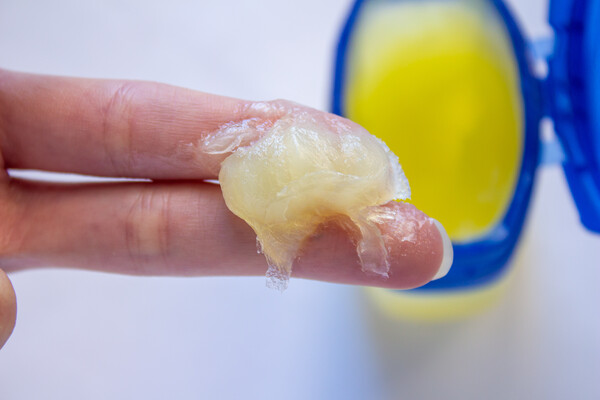Many people think that surgical scars are incurable, but this is not the case.
Patients experience skin problems during cancer treatment, not just after surgery, and it's not always easy to distinguish whether the solution is therapeutic or lifestyle management.
Moreover, the skin problems experienced by patients during cancer treatment are a significant concern.
During cancer treatment, the skin may become dry, itchy, red, or there may be changes in nails and hair,” said Professor Jung Joon-min of the Department of Dermatology at Asan Medical Center, on the YouTube channel with the same name as the hospital. “These skin changes are not just side effects but can affect the continuity of (cancer) treatment and quality of life if not properly handled.”
Scars that occur after surgery or procedures during cancer treatment are not just cosmetic, but can lead to functional or psychological discomfort. Scars from thyroid cancer surgery are located in exposed areas of the body, causing psychological stress. In the case of hypertrophic scars or keloids, they can also be accompanied by pain or itching, according to Professor Jung.
So, how should patients deal with skin changes during cancer treatment, and what can cancer patients do to minimize them in their daily lives?
First of all, it's essential to take early action when scarring occurs due to cancer treatment.
“It is recommended to treat scars early, and it is possible to treat scars caused by surgery from the time the sutures are removed after surgery,” Jung explained. “Various methods are used to treat scars and prevent them from worsening, including scar ointments, silicone sheets, the oral drug ‘tranilast,’ laser treatment, and injection treatment, depending on the characteristics of the scar.”

The main skin side effects of different types of cancer drugs can be slightly different, and the treatment and management approaches are also slightly different. “Dry skin, hair loss, mucositis, and hand and foot syndrome are common with traditional cytotoxic anti-cancer drugs, and should be managed with moisturizers or soothing ointments,” Jung said.
With targeted therapies, such as EGFR inhibitors and VEGFR inhibitors, acneiform rashes, inflammation around the nails, and skin reactions on the hands and feet can occur. Topical anti-inflammatory treatment with antibiotics is recommended as needed. Dermatologic treatment may be necessary for excessively thickened skin resulting from targeted therapies.
rash and itching are common side effects associated with immunotherapy and immunooncology drugs. In rare cases, various reactions can occur, including vitiligo, psoriasis-like rashes, and blistering rashes. “Systemic steroid treatment is considered depending on the severity of the skin disease (caused by immuno-oncology drugs),” Professor Jung explained.
Some skin symptoms that occur during chemotherapy may warrant a visit to the hospital.
“If you have a rash or peeling skin accompanied by systemic symptoms, including fever, if you have symptoms that involve mucous membranes such as the eyes and mouth, if you have skin symptoms that interfere with your daily life due to severe itching or pain, or if you have wounds that do not heal and become ulcerated, you should visit a hospital for appropriate examination and treatment,” Jung advised.
are also some things to keep in mind in self-care for wounds from chemotherapy. This involves the constant application of antiseptics to the wound. "There are cancer patients who constantly use antiseptics to self-heal their wounds, but this can worsen and ulcerate the wound, so you need to be careful," Professor Jung said.
Additionally, the daily skin care routine for cancer patients should be slightly modified.
"Avoid using hot water in the bath or shower, scrubbing, scrubbing, and strongly scented products, and gently cleanse your hands with mildly acidic, fragrance-free products," Jung said. "Apply a generous amount of cream or ointment moisturizer within three minutes after showering, and repeat the application of moisturizer at least two to three times a day to prevent dryness."
Cancer patients should also keep their nails short and avoid friction and pressure on the palms of their hands and feet to prevent damage.
"It is important to avoid direct contact with detergents and others so that the skin barrier can be maintained," Jung said. "When choosing cosmetics, avoid products containing alcohol, fragrances, preservatives, AHA, BHA, and retinol, which can irritate the skin, and switch to non-irritating, fragrance-free, and moisturizing products during treatment."
Sun protection is vital during chemotherapy, as the risk of sunburn is increased. "During chemotherapy, photosensitivity can occur and hyperpigmentation can occur, so it's important to use a sunscreen with an SPF of at least 30, including non-biodegradable chemicals, every day, and to protect your skin with hats and long clothes," Dr. Jung said.
Above all, cancer patients mustn't overlook skin problems during chemotherapy.
"Skin problems are an important factor that directly affects treatment continuity and quality of life," Professor Jung said. "Symptoms, such as itching, pain, and hair loss, can affect patients' psychological well-being and reduce treatment adherence. Dermatologic care should be considered as part of the treatment, not an option."

